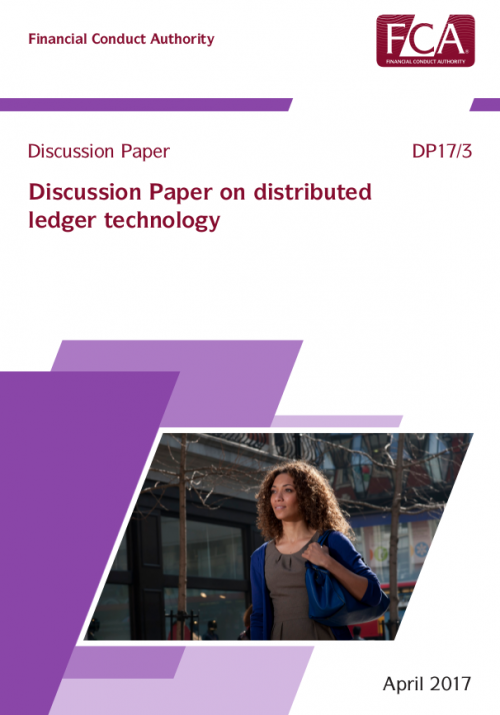FCA Opens Consultation on Distributed Ledger Technology

The Financial Conduct Authority has opened a consultation on the future use of distributed ledger technology (DLT) in financial services.
The FCA wishes to explore where the balance of risk and opportunities may lie when making use of DLT such as blockchain. In the consultation paper the FCA states that:
"Distributed ledger technology (DLT) is an example of rapidly developing technology which offers exciting potential to support the needs of consumers and the market. DLT may also present new challenges and potential risks. For example, how regulated firms allocate responsibilities for systems shared among them."
The release of the consultation paper coincided with the publication of a speech by Christopher Woolard (Executive Director of Strategy and Competition at the FCA) at Innovate Finance Global Summit in London where he said:
"...we are committed to supporting innovation. As long as firms are developing innovative products, services and solutions that offer better outcomes for consumers, we’re open for business. As long as firms are developing innovative products, services and solutions that offer better outcomes for consumers, we’re open for business. It is our job to provide the conditions that simplify regulatory complexities and give space for firms to innovate."
In the consultation paper, the FCA defines DLT as “a set of technological solutions that enables a single, sequenced, standardised and cryptographically-secured record of activity to be safely distributed to, and acted upon by, a network of varied participants. This record could contain for example, transactions, asset holdings or identity data. This contrasts with a traditional centralised ledger system, owned and operated by a single trusted entity. We consider a blockchain to be a type of DLT where records are collated into 'blocks' and linked using a cryptographic signature.”.
Interest in distributed ledger technology has grown substantially over the past few years, with a variety of use cases being pursued including investment banking, electoral systems, healthcare records and intellectual property.
A number of government land registries have also been trialing DLT as a means to record property transactions - including Sweden, Republic of Georgia and Honduras.
